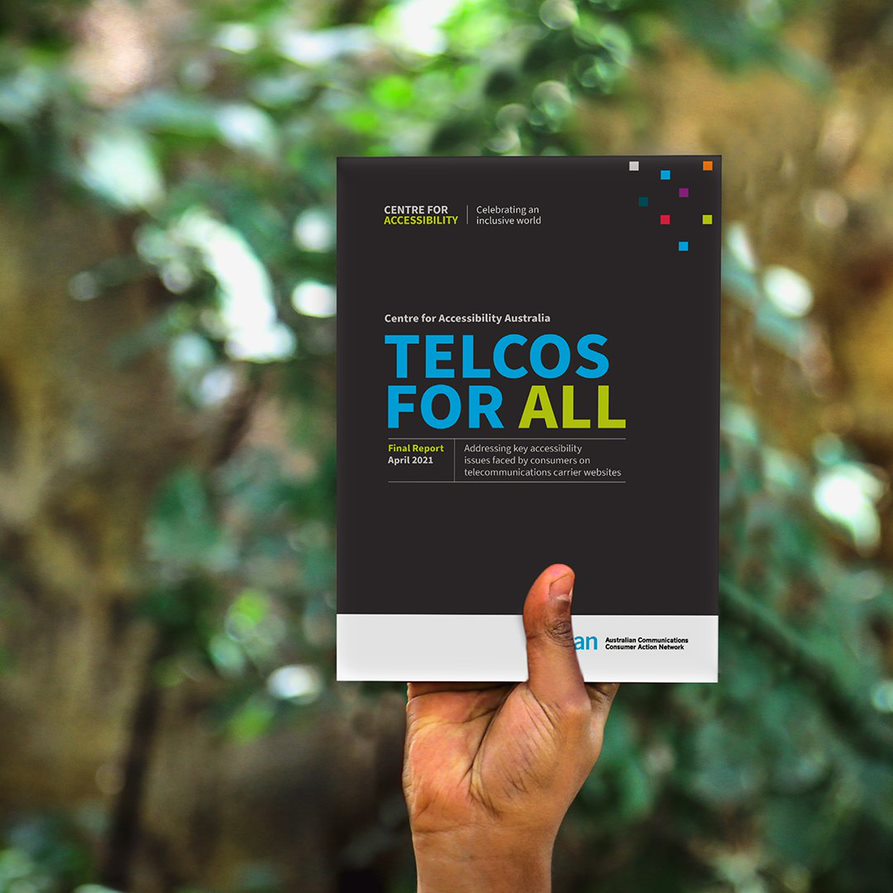- Details
ACCAN has recently endorsed the Communications Alliance draft DR C564:2020 Mobile Phone Base Station Deployment Industry Code. The draft Code updates the previous version to bring it in line with the ‘temporary facilities’ requirements in the Telecommunications (Low-impact Facilities) Determination 2018.
ACCAN was a participating member of the Communications Alliance working group reviewing this Code.
Read more: Communications Alliance DR C564:2020 Mobile Phone Base Station Deployment Industry Code
- Details
The ACCC consulted on the NBN Services in Operation (SIO) Record Keeping Rules (RKR). The rules require NBN to share information on a quarterly basis with the ACCC regarding the number of services in operation, network capacity acquired, technology type and attributes as well as geographical distribution of services. This information is then shared as part of the NBN wholesale market indicators report. The rules are due to expire on 30 September 2020, the ACCC sought consultation on whether they should be extended or amended.
ACCAN supports the ACCC’s preference for extending the rules for another five years and believes that the rules provide a comprehensive view of the NBN wholesale market. We therefore provided no suggestions for revision.
Read more: NBN Services in Operation – Record Keeping Rules Consultation Paper
- Details
Up until recently, superfast fixed line broadband networks serving residential customers had to operate on a structurally separated basis – which means a strict separation between wholesale and retail arms of the business. Recent amendments to the Telecommunications Act allow networks to functionally separate, which is a less costly way of achieving similar outcomes. The ACCC role is:
- to develop an optional standard functional separation undertaking for networks, as an alternative to networks developing their own;
- to make determinations exempting small network operators from separating wholesale and retail parts of their business.
The ACCC’s consultation is about proposed requirements for functional separation, and criteria for granting exemptions.
- Details
ACCAN has responded to the draft report published by the ACCC on the public inquiry on the access determination for the domestic mobile terminating access service (MTAS). The purpose of the inquiry was to set an appropriate price that mobile network operators can charge for calls terminating on their mobile networks.
The ACCC carried out a benchmarking exercise which sought to estimate the current cost of providing MTAS in Australia by comparing the cost of providing the service in various countries and applying it to an Australian context. ACCAN supports the methodology used in the benchmarking exercise which produced a range for the estimated cost of supplying MTAS in Australia, but questions aspects of the approach taken by the ACCC.
- Details
ACCAN submitted to the ACCC’s review on Division 12 and Internet Activity Record Keeping Rule where there were several proposals regarding the information the ACCC seeks from service providers.
Read more: Division 12 and Internet Activity Record Keeping Rule (RKR) review
- Details
ACCAN has made two submissions to the Royal Commission into Violence, Abuse, Neglect and Exploitation of People with Disability (Disability Royal Commission). In these submissions we highlighted the importance of communications accessibility for consumers with disability.
- Details
ACCAN made a submission to the Select Committee Inquiry into Australian Government's Response to the COVID-19 Pandemic. Overall, ACCAN praised the government’s response to the pandemic, NBN Co’s COVID-19 telecommunications assistance packages, and the telecommunications industry providers who quickly developed a range of measures designed to assist recipients to meet their ongoing financial commitments.
Read more: Submission to Senate Select Committee on COVID-19
- Details
ACCAN is seeking nominations for Directors to fill three (3) vacancies on its Board.
In accordance with the ACCAN Constitution, the 2020-2021 ACCAN Board will consist of nine (9) members1. Six (6) positions are continuing Directors from the 2019-2020 Board. Three (3) Directors are retiring from the Board but may be eligible for re-election as stated in the ACCAN Constitution.
In accordance with the ACCAN Constitution Board members are elected for a three year term.
In order to ensure an appropriate balance, the Board is particularly seeking candidates with legal and regulatory expertise; and/or experience in financial management and governance in a not for profit organisation; and/or an understanding of the issues affecting young consumers; and/or small businesses.
Read more: Call for nominations for the ACCAN Board
Write comment (0 Comments)- Details
Wamboin Communications Action Group Inc.
This project assisted regional and rural areas to effectively engage with their local communities and build a business case for the implementation of network capabilities to support their current and future needs. The project delivered a set of resources that can be applied across regional, rural and remote areas to help communities identify local requirements to achieve better Internet connectivity to support their economic and social growth.
Read more: Achieve Better Broadband for Regional Communities
- Details
 Children and Media Australia (Formerly ACCM)
Children and Media Australia (Formerly ACCM)
Grant Round: 2020
Amount: $48,000
Read more: Apps Can Trap - Tips for Protecting Children’s Privacy
- Details
 Centre for Accessibility
Centre for Accessibility
In 2021, the Centre For Accessibility (CFA) Australia undertook research to improve the accessibility of websites and apps provided by the telecommunications sector.
- Details
Charles Sturt University
This project and its report outlines regional and rural consumer understandings of smart technologies and their applications in North West New South Wales, Australia. It identifies consumer engagement with digital infrastructure, the changing nature of development and planning in a digital context and the impact of smart services on social relations.
